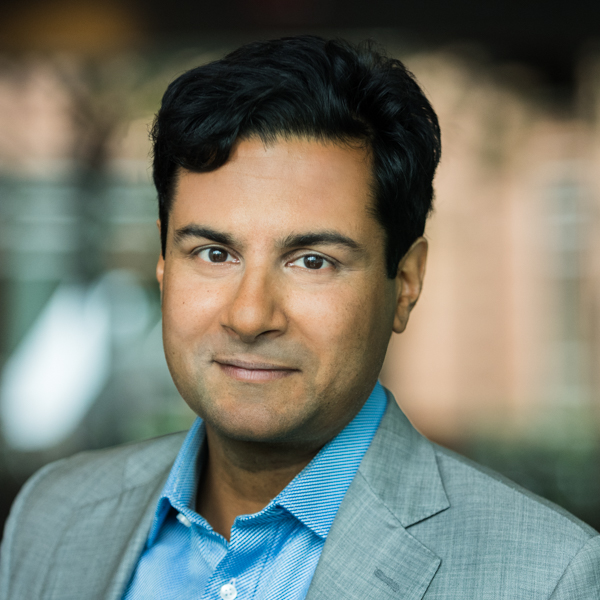Khoury News
Professor Abhi Shelat Part of Team Awarded $12.2M IARPA Grant
A professor at Khoury College since 2016, Abhi Shelat is part of a team of professors and researchers that was recently awarded a $12.2M grant from the IARPA.

For Professor Abhi Shelat, Northeastern is a family affair, beginning 44 years ago, when his father earned his MBA from Northeastern in 1975. A professor at Khoury College since 2016, Shelat is part of a team of professors and researchers that was recently awarded a $12.2M grant from the Intelligence Advanced Research Projects Activity (IARPA).
While an undergrad at Harvard, Shelat took his first cryptography course with Michael Rabin. Later, as a senior, he took a course at MIT with Ron Rivest, who encouraged him to apply to MIT graduate school. Shelat points out he is fortunate to have studied under such remarkable cryptographers; both Rabin and Rivest, as well as his Ph.D. advisor Silvio Micali, are Turing-award winners. Shelat received his Ph.D. in computer science in 2005.
A stint at IBM Zurich Research was followed by nine years as Assistant and later Associate Professor at the University of Virginia. There, Shelat’s research focused on cryptography, primarily two basic problems: the theory of encryption, and secure multi-party computation.
The offer to come to Northeastern “came out of the blue,” Shelat says. It was essential that his partner, acclaimed architectural historian Cammy Brothers, also receive an appointment at the university. Shelat credits Khoury College Dean Carla Brodley, who he calls “a phenomenon,” in making the two-body project work. “In less than three months, we sold our house, packed up and moved to Boston.” Brothers has a joint appointment in Architecture and in Art & Design at Northeastern.
Since joining the Khoury College faculty in 2016, Shelat’s research has focused on cryptography and applied security. He works on secure computation protocols, which are “methods for mutually distrusting parties, each with private inputs, to jointly compute a function while ensuring maximal privacy and correctness.”
He continues to be “very impressed by the quality” of his students. Former PhD students include Mona Sergi (2013), Chih-hao Shen (2014), and Ben Kreuter (2018), all of whom now work at Google.
In December 2017, IARPA – an organization within the Office of the Director of National Intelligence which invests in high-risk, high-payoff research programs to tackle some of the most difficult challenges of the agencies and disciplines in the Intelligence Community – put out a “broad agency announcement” that they were looking for an original vision for the construction of secure cryptographic applications.
Shelat, along with fellow Khoury College professors Amal Ahmed and Daniel Wichs, and seven other researchers from MIT, BU, and the University of Rochester, “carefully crafted a response to the call, since our expertise was in this area,” he explains. The main focus is secure computation, “keeping your data encrypted but still allow[ing] computations to be run on them.”
Shetat led his team in the writing and formulation of the grant proposal, “but everyone contributed substantially,” he says. He acknowledges that the grant proposal process wouldn’t have been possible without the help of Khoury College’s grants office.
“As it stands, there is no good mechanism…to create cryptographic applications that have optimal tradeoffs between utility, security, and cost,” Shelat explains. Shelat and his team have proposed ACHILLES, “a system whose main goal is to offer ease of use along with high assurance of correctness and privacy.” The project is currently in the first step of the process.
Shelat points out that “There are many worthwhile ‘ideas’ that should be supported; some may question funding the development of the theory and tooling to enable the creation of distributed cryptographic applications that offer a gold standard on data privacy.” He insists, “The theory and tooling are important, adding: “It is to me and the others on this team, and we are extremely thankful for the opportunity.”
“Such projects to develop knowledge seem to only be fundable by long-term, visionary funding agencies such as IARPA, DARPA, and the National Science Foundation,” Shelat says.
When asked how his father feels about his son teaching at the same school where he earned his MBA, Shelat, the son of immigrants, says his father is “tickled.”